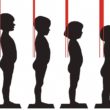Most people can tell the signs of a classic depression with its overwhelming veil of sadness and hopelessness. But depression doesn’t always manifest itself as debilitating sadness; it can also show in less obvious ways.
Unfortunately, many people are reluctant to consider depression as the cause of their symptoms. Even people that are in the throes of a debilitating depression do not know they have it or would actually seek treatment for it. This is because, in part, some may equate it with weakness or simply do not associate these symptoms with depression. For some people, however, the stigma surrounding depression runs so deep that it can make the recognition of even the most common symptoms difficult.
Hesitation to admit to a problem that many people perceive as a sign of weakness may lead most people to fail to pay attention to the most obvious to the less known signs of depression. Here are 10 unexpected signs of depression you should be on the look out for.
1. Weight changes
Some people respond to depression or stress by eating comfort foods like ice cream, chips, chocolate and other high calorie foods. Although emotional eating can help boost the brain’s feel good chemical serotonin, it can also lead to weight gain and feelings of guilt and shame. It also does nothing to help with the depression. On the other hand, depression can also cause weight loss as it can cause someone to lose all interest in food.
2. Forgetfulness and difficulty focusing
If you’re having difficulty focusing, struggling to form coherent thought or you feel that your mind is numb or foggy, the reason could be depression. Studies show that sustained episodes of depression can raise the levels of cortisol in the body. This can affect the parts of the brain that is responsible for learning and memory. Fortunately, treating depression may also improve learning and memory-related problems.
3. Aches and pain
One of the physical manifestations of depression is unexplained chronic pain. Feeling sick to your stomach, body aches and pains, a constant cold or flu and a weakened immune system can all come with depression. Many people dismiss chronic pain as a sign of depression because they don’t usually associate it with the disease.
Nevertheless, research shows that nearly 75% of people diagnosed with depression suffer from recurring or chronic pain. Although the link between depression and chronic pain isn’t clear, it is thought that this is related to high levels of cytokines found in patients diagnosed with depression. A cytokine is a small protein released by cells that can induce inflammation.
4. Neglected hygiene
Sudden neglect of self-care, wellbeing and appearance may be a sign of depression. Signs may be as small as not brushing your teeth or not buckling up to as consequential as not tending to chronic conditions such as diabetes or heart disease. Not caring about your wellbeing or appearance on the outside is a strong indication of the turmoil happening inside.
5. Heavy drinking
Nearly a third of people suffering from depression have an alcohol problem. Drug use, both illicit and prescription, are common ways people try to escape their emotions. Although a drink may seem to give you a lift at first, a second or a third can intensify negative emotions like anger, anxiety and aggression. Alcohol is also a depressant, so excessive alcohol intake can worsen depressive episodes and increase its frequency.
6. Sudden and exaggerated emotional changes
People with depression often show little emotional expression. They may feel numb or neutral, and things that once made them laugh or cry barely registers. There are other times, however, that they can show too much emotion. They can be suddenly irritable or explosive, or they may express exaggerated feelings of hopelessness, sadness, worry or fear. If you show sudden and extreme ups and downs in their behavior, depression might be the cause.
7. Excessive use of the Internet
Do you find yourself choosing virtual social interactions over actual face-to-face interactions? Are you spending too much time on the Internet gambling or shopping? When Internet use gets out of hand enough to negatively affect your daily routine, this may be a sign of depression. Studies show that people who have more virtual social interactions over real-life interactions or those who go online compulsively may be depressed. They may feel deprived of human companionship. Others may use the Internet to escape from or cope with their thoughts and emotions.
8. Difficulty making decisions
A Columbia University research showed that most people make more than 70 conscious decisions every day. Most of these choices require very little thought. Stay in or wake up? Stay in pajamas or get dressed? Eat cereal or pancakes? Watch TV or read the newspaper?
When a person is depressed, these no brainer decisions sudden become difficult and weighty.









